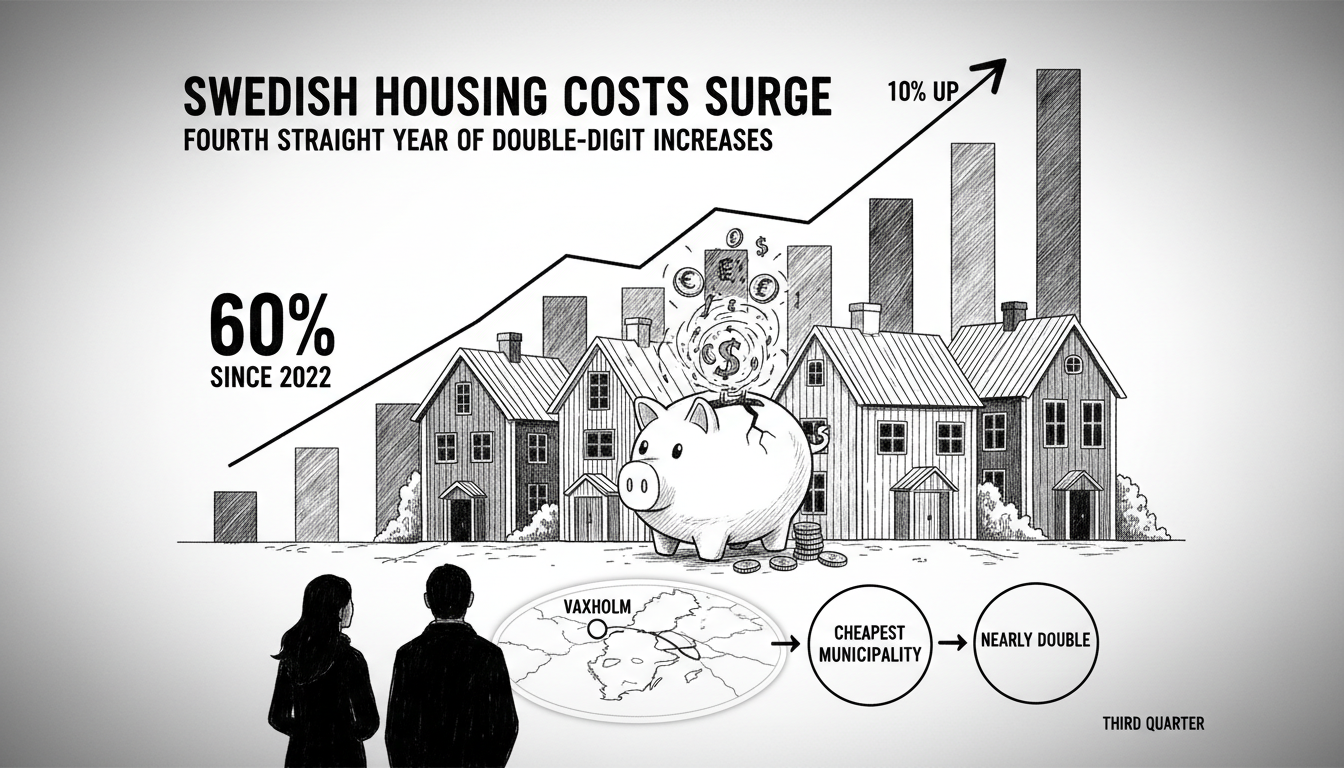Swedish housing costs continue climbing sharply this year. Essential services like heating, water, waste management and grid fees rose nearly 10% compared to last year. This marks the fourth consecutive year with double-digit increases for these mandatory utilities.
The Nils Holgersson Group, comprising property owner associations and tenant organizations, tracks these non-negotiable costs. Their latest analysis shows fees grew far beyond general inflation rates.
"These price hikes are not sustainable long-term," said Rikard Silverfur, chair of the Nils Holgersson Group. "Households and property owners cannot influence costs for these essential monopoly services."
Average total fees increased 9.7% when excluding volatile electricity market prices. The three previous years saw increases between 11% and 14% annually.
Since 2022, costs for grid fees, district heating, water, sewage and waste have surged almost 60%. Consumer price inflation rose only about 20% during the same period.
Falling interest rates provided some relief for housing companies this past year. Lower borrowing costs partially offset rising utility fees. For many associations, interest expenses remain the largest cost item, followed by district heating.
The report highlights dramatic municipal fee differences across Sweden. In the cheapest municipality, standard apartment fees total 1,961 kronor monthly. Vaxholm charges residents 3,633 kronor monthly - nearly double the cheapest rate.
The gap between cheapest and most expensive municipalities has widened for four consecutive years.
"Large price differences show fees are set on unclear grounds," Silverfur stated. "We need clearer structures for transparency and influence."
These relentless utility increases create genuine affordability concerns for Swedish households, particularly since residents have no alternative providers for these essential services.
